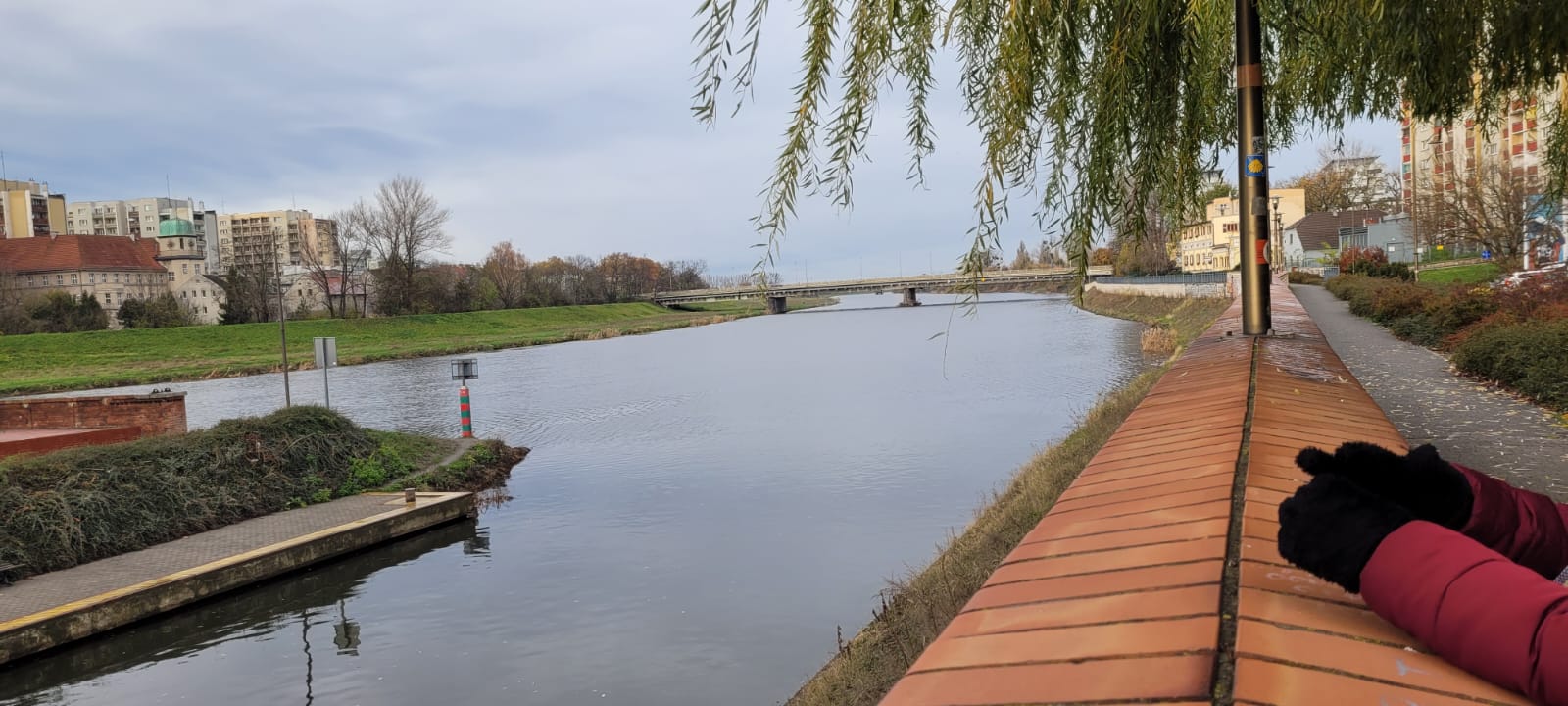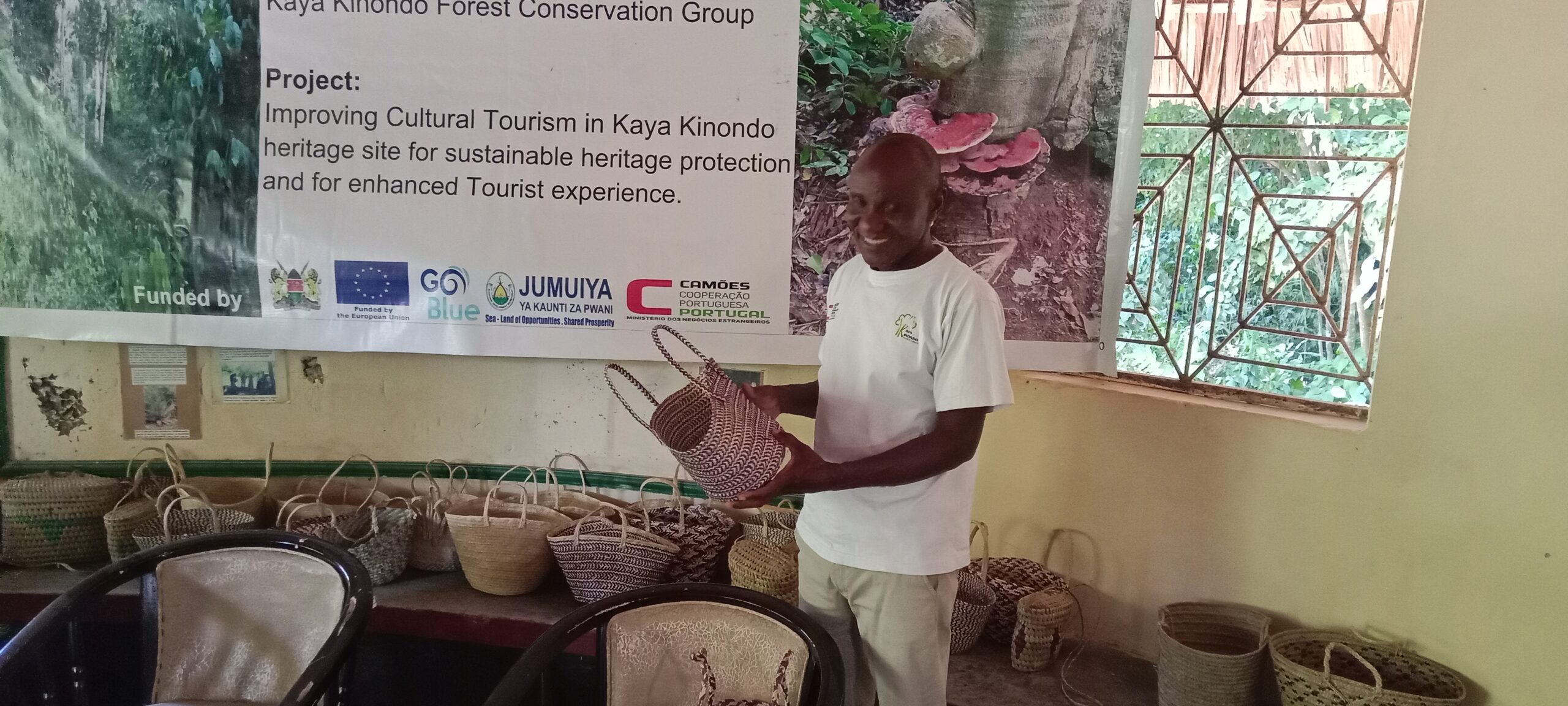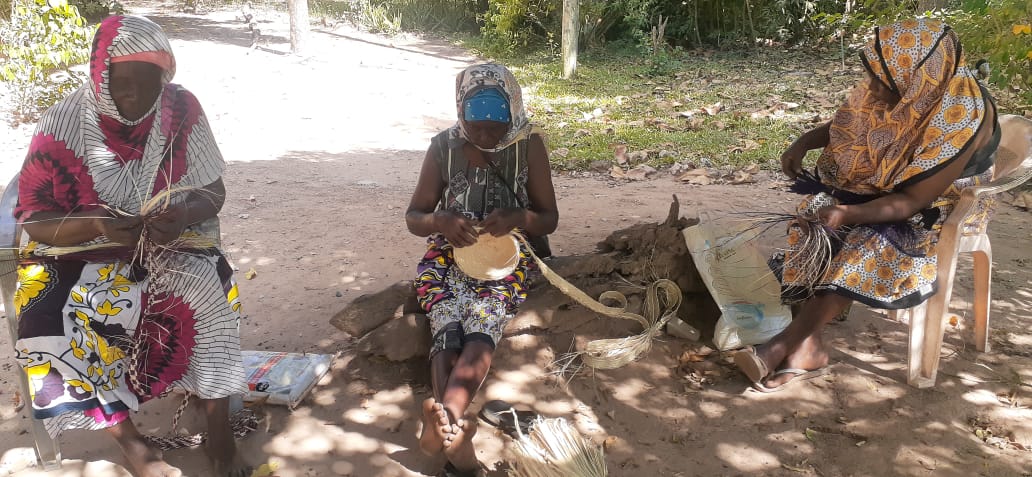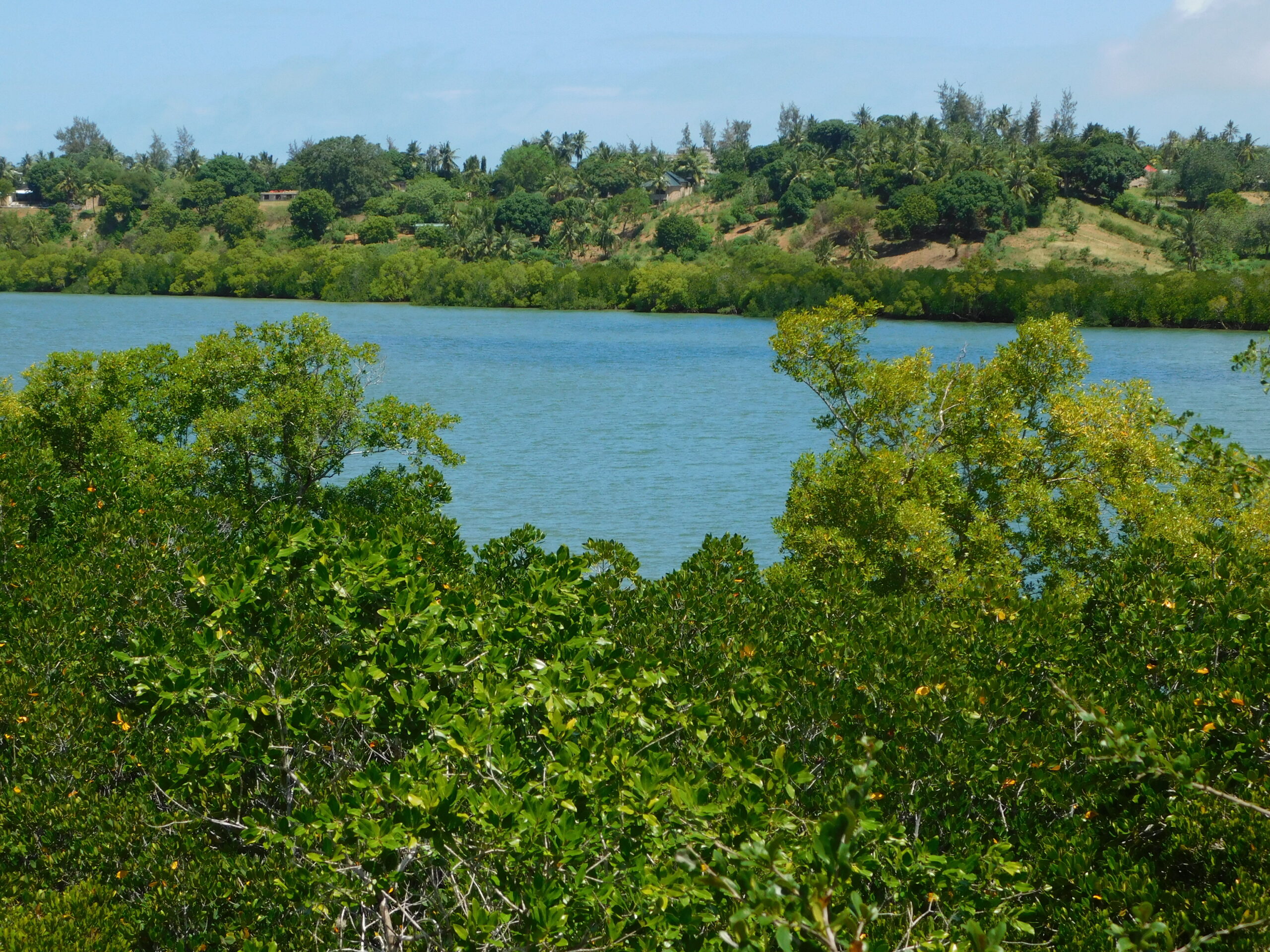Stellamaris Miriti founder Stejos Tours & Travel | Photo by Stellamaris
Stellamaris Miriti, Founder Stejos Tours & Travel embarked on her journey into the tourism industry while still pursuing her software engineering degree in college. Her passion for travel led her to identify a gap in the industry – lack of travel opportunities tailored for youth and the exploration of Kenya’s hidden gems.
Her motivation intensified upon realizing that many young people with aspirations in tourism were overlooked and unheard. Determined to fill this void, Stella founded her own company in 2014, driven by a desire to bridge the gap for youth in the industry.
However, breaking into an unfamiliar industry wasn’t easy. Without prior experience, she sought guidance from established figures in the tourism industry to learn the ropes.
Speaking at a webinar organized by the Sustainable Travel and Tourism Agenda about women in Tourism, Stella said it was difficult for people in the industry to give them time to talk and ask questions; “We realized we had to carve out our own space.”
“I remember when we started this company, we were labeled as ‘briefcase companies’ by the larger firms, but we refused to be seen as such because we were serious. Even with a small office, we were determined to do things the right way”, she recounted.
“With the support of women in the industry and the Tourism Regulatory Authority (TRA), we formalized our constitution and registered our company, along the way, many others began supporting us”, she added.
Tourism Regulatory Authority (TRA) is a corporate body established under section 4 of the Tourism Act No.28 of 2011 and is mandated to regulate the tourism sector in Kenya. This entails developing regulations, standards and guidelines that are necessary to ensure an all-round quality service delivery in the tourism sector.

Rosebell Mugambi, founder of East Africa Luxury Travel, transitioned from employment in a tour company to launching her own venture in 2018. With her tourism experience since 2005, she echoed Stellamaris sentiments regarding the challenges faced when starting a company, citing gender pay disparities and insufficient maternity leave as key drawbacks for entrepreneurship.
Fortunately, she found solace in networking, which proved instrumental in navigating the industry’s complexities.
“Transitioning from employment to entrepreneurship brought about many changes, despite having licenses, offices, and employees, we were still referred to as ‘briefcase operators’. Joining tour operators’ associations and other networks provided me a platform to assert our legitimacy.” Rosebell reflected.
She said the networks facilitated product development and domestic tourism campaigns, offering her valuable insights into market resilience during crises like the Covid pandemic.
Acknowledging the transformative power of technology, Rosebell said the internet also helped her in breaking barriers, enabling her to market her services to a wider audience.
“Partnerships with the Kenya Tourism Board and other networks were pivotal, they enlisted our support in promoting domestic tourism, allowing us to explore previously untapped destinations, “she concluded.

Photo of Miss Rosebell Mugambi founder of East Africa Luxury Travel | Photo by Rosebell
Judy Gona, Lead Consultant at Sustainable Travel and Tourism Agenda, a consulting company committed to supporting sustainability of tourism destinations and businesses, said there are more than 2,000 tour companies in the country, with between 20-30% Women led/managed tour companies.
She emphasized the importance of recognizing women who have shattered the glass ceiling in the tourism industry by establishing their own companies from scratch. She highlighted the need to showcase these trailblazers to inspire those deterred by the challenging policies inherent in starting a tourism enterprise.
“Organizations managing tourism may have well-intentioned policies, but inadvertently, they may harbor exclusionary practices, for instance, requirements such as a turnover of Ksh 10-15 million or a certain number of years in business can unintentionally exclude aspiring entrepreneurs, impacting not just women but also small and medium enterprises striving to enter the tourism sector”, explained Miss Gona.
Miss Gona however urged small and medium enterprises to formalize their operations to enhance collaboration opportunities and foster growth. She encouraged entrepreneurs to emulate the example set by the pioneering women in the industry.
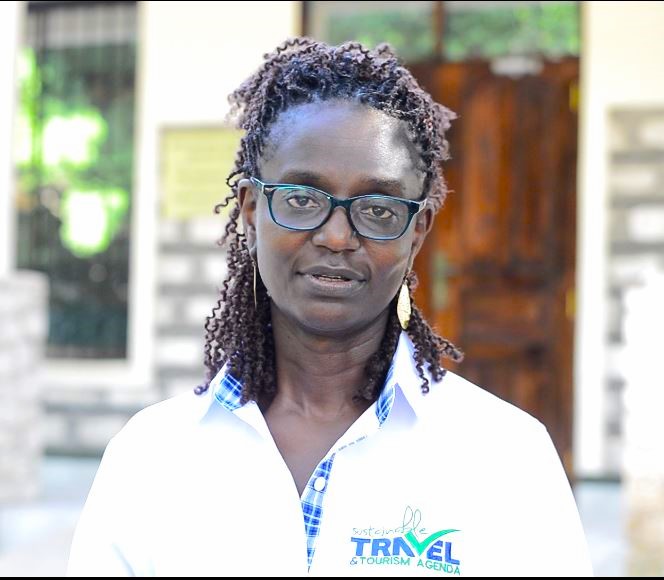
Photo of Miss Judy Gona, Lead Consultant at Sustainable Travel and Tourism Agenda | Photo by Captain Nyota.
Industry Barriers for Women
Rosebell the founder of East Africa Luxury Travel, highlighted that many women who enter the tourism industry sometimes face challenges such as being fired or feeling compelled to resign due to insufficient time to care for their newborns. Citing herself as an example.
“When I became pregnant, I made the difficult decision to resign from my job,” Rosebell explained. “I witnessed the struggles my female colleagues faced during pregnancy and after giving birth. As a first-time and young mother, I prioritized the peace of mind that comes with caring for my child.”
Fortunately, Rosebell had cultivated a network of clients who continued to seek her services even after she resigned. She said when she referred them to other companies, they insisted on her services regardless of the cost. It was this support that prompted her to establish her own company.
“My clients used to call me for services, while carrying my baby on my back, simultaneously listening to phone calls and managing paperwork. I thought to myself, why not open my own company? And that’s when East Africa Luxury Travel was born,” she recounted with a wide smile.
Judy Gona the Lead Consultant at Sustainable Travel and Tourism Agenda echoed Rosebell’s sentiments, emphasizing that many women leave the industry upon becoming mothers due to challenges such as demanding work schedules.
She also pointed out that certain spaces within the industry are not conducive for women, such as situations where clients expect female hosts without providing appropriate accommodations.
“Traditionally, it is expected that only male hosts will accompany clients, leaving many female hosts uncovered. These are issues that the industry must address and rectify,” she emphasized.
“I have witnessed women resigning from the tourism industry upon becoming mothers due to the demanding time schedules at their workplaces. This remains a significant barrier for many women in this industry,” Miss Gona added.

Photo of Professor Marina Novelli, Professor of Marketing & Tourism from Nottingham University Business School. | Photo by Prof Marina
Speaking during the webinar, Professor Marina Novelli, Professor of Marketing & Tourism from Nottingham University Business School emphasized that the challenges faced in the tourism industry in Kenya and Africa mirror those experienced worldwide.
She stressed the importance of international collaboration to address these issues and develop common solutions.
Integrating Diverse Perspectives
Stellamaris said there is a need for the tourism sector to integrate youth and women into leadership positions, thereby infusing diverse perspectives and adapting to evolving lifestyles to deliver contemporary services to tourists.
Echoing Stella’s sentiments, Rosebell advocated for greater inclusion of women and youth in tour guiding roles, traditionally dominated by men despite the significant number of women aspiring to enter the profession.
Building upon these sentiments, the trailblazer women in the tourism industry collectively urged small and medium enterprises to fortify their endeavors through strategic investment and proactive measures. They emphasized the need for resilience in the face of challenges, advocating for adaptability to swiftly respond to shifting market dynamics.
Furthermore, they encouraged enterprises to identify and embrace niche markets, fostering innovation and offering tailored solutions to meet the evolving demands of tourists, and embracing technological advancements which is essential for staying competitive in the digital age, alongside fostering robust networks and collaborations to leverage collective strengths and opportunities within the industry.


